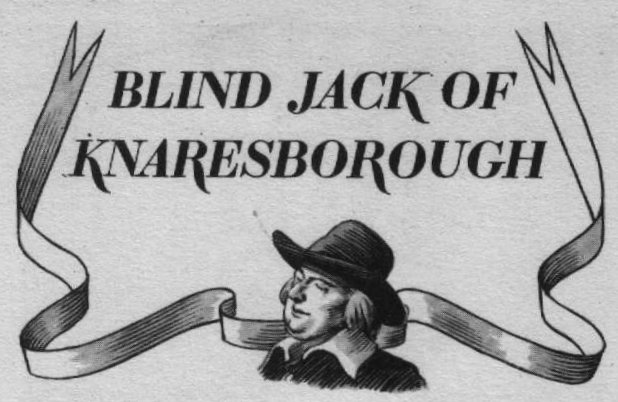I am weary, writing down all this ; so little has my lost one to do with it, which alone could be its interest for me ! I believe I should stop short. The London years are not definite, or fertile in disengaged remembrances, like the Scotch ones : dusty dim, unbeautiful they still seem to me in comparison ; and my poor Jeannie’s ‘problem’… is so mixed with confusing intricacies to me that I cannot sort it out into clear articulation at all, or give the features of it, as before. The general type of it is shiningly clear to me. A noble fight at my side ; a valiant strangling of serpents day after day done gaily by her (for most part), as I had to do it angrily and gloomily ; thus we went on together. Ay de mi! Ay de mi!
Thomas Carlyle, recalling his wife Jane Welsh in Reminiscences (1881)
It was a rainswept gloomy afternoon in Chelsea when the doorbell clanged at the house on Cheyne Walk. Sparky chatterbox and letter-writer Jane Welsh went to answer it herself, for she had given all the servants a day off to enjoy the rain and gloom. She opened the door to reveal, standing on the step, a tall angular dusty creaking tatty bristly fellow, whose eyes were like fathomless whirlpools. He might have been a chimney sweep, had he been dustier and the dust blacker. As it was, she recognised him immediately, not surprisingly, as he called at the house at about this time every single day.
“Old Snakey!” she cried, “You are a tad early.”
“Yes, Mrs Carlyle, so I am, I hope not inconveniently so. I’m afraid my appointment book is absolutely chocker at the moment so I have had to squeeze you in today as best I can.”
“Well I am indebted to you for fitting us in. You know your way to the parlour. Go thither while I fetch Mr Carlyle.”
And while Old Snakey made his way to the parlour, Jane Welsh Carlyle climbed half-way up the stairs towards the attic where her husband sat scribbling away at his interminable biography of Frederick the Great.
“Oh Thomas! Thomas!”, she cried, but it was no use. The attic was soundproofed to blot out the sound of the next door neighbour’s rackety hens, and of train whistles, both of which drove the Scottish sage crackers. Jane climbed further up the stairs until she was at the door of the attic, flung it open, and announced in a bright and cheerful voice,
“Thomas, you must come down at once! I am so happy! The snake charmer is here!”
“Isn’t he a tad early?” growled the irascible polymath.
“Oh don’t get all grumpy, Thomas” pleaded Jane. She was in high spirits, ever since the arrival of Old Snakey.
The pair of them made their way down to the parlour, Jane skipping with glee, Thomas glowering with anger.
“What with all this carry on I am never going to finish my life of Frederick the Great,” he moaned.
“I am sure you will, Thomas, even if it takes you thirteen years of ultimately worthless toil,” said Jane, while humming a happy ditty.
In the parlour, Old Snakey was sitting in an armchair, getting himself into what generations yet to come would call “the zone”.
“You two can make idle chitchat while I fetch the tall amphora-shaped wicker baskets from the cellar,” said Jane, in high frolic.
But the snake charmer and the proto-Fascist sat in silence until Jane returned, lugging the two tall amphora-shaped wicker baskets she had fetched from the cellar.
“Do you have any preferences today?” asked Old Snakey.
“I’d like a boa constrictor, please!” shouted Jane with unrestrained glee, “And what about you, Thomas? A python? A viper? A burrowing asp?”
But Thomas merely grunted.
“Oh, you’re such an old miseryguts!” said giggly Jane, “Give him a surprise then, Old Snakey!” she added.
At which the snake charmer took from his pocket a flute or pipe of mysterious Oriental origin and proceeded to play upon it a mesmerising melody of mysterious Oriental origin. And as he played, so the lids of the tall amphora-shaped wicker baskets were dislodged, from within, and out of each came crawling a serpent, a boa constrictor and a diamondback rattlesnake.
“Ooh, how unbearably thrilling,” cried Jane, “We haven’t had a diamondback rattlesnake before! Isn’t that exciting, Thomas?”
But Thomas Carlyle, his head still stuffed with what he called Prussian blockheadism, was hardly listening.
“Well,” said Old Snakey, replacing his mysterious Oriental flute or pipe in his pocket, “I have much to do, so I shall take your leave. I’ll let myself out. See you tomorrow!”
And he left the room, leaving the Carlyles and the serpents alone together. No sooner had he gone than Jane sprang upon the boa constrictor, laughing her head off, and strangled it with her bare hands.
“Your turn, Thomas. Come on, cheer up!”
But as he loomed above the diamondback rattlesnake with murder in his eyes, there was no lightning of the Craigenputtock savant’s mood. He was angry. He was as gloomy as the Chelsea weather. He fell upon the serpent with all his bottled-up ferocity and gripped its throat in his big hairy fists and squeezed and squeezed until the serpent sank limp and dead upon the carpet.
Beside him, Jane Carlyle clapped her hands like an overexcited child.
“Tip top serpent strangling, Thomas!” she yelled, “Well, that’s that done for another day. You can go back to your attic and write more guff about Frederick the Great. I will throw the corpses of the serpents over the fence into next door’s garden.”
“I expect that is why his damned hens make so much damned noise!” shouted Thomas Carlyle, and he puttered up the stairs.
Outside, it was still rainswept and gloomy. It was another nineteenth-century afternoon in Cheyne Walk. Ay de mi! Ay de mi!




